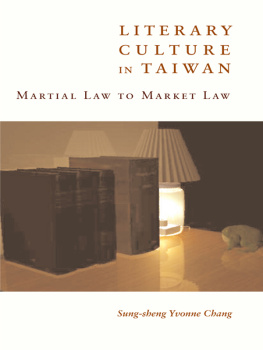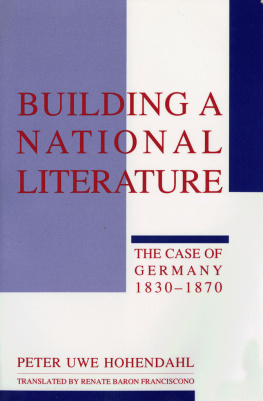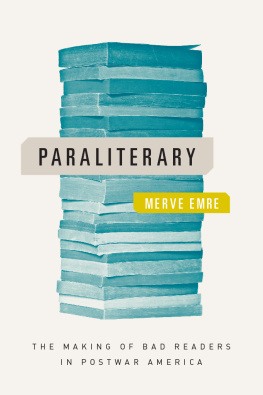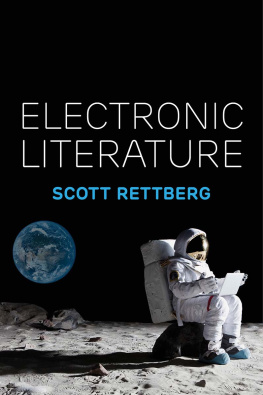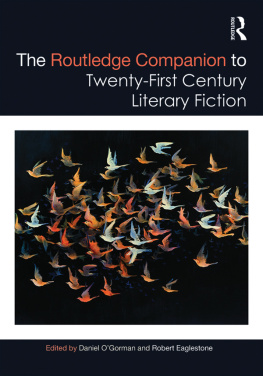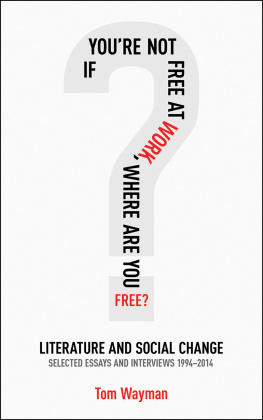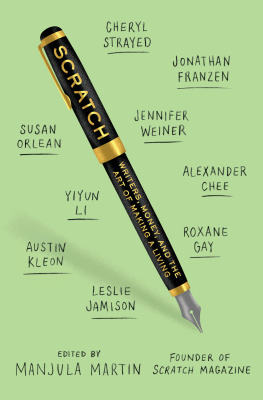Advance Praise forMaking Literature Now
Making Literature Now is a valuable contribution to our understanding of the way the conditions of cultural creation are changing in the new economy. In a granular and highly accessible manner, Hungerford takes us into sites where the work of making, disseminating, and reading contemporary fiction actually takes place, introducing us to the kinds of people who make it possible. An inventive blend of theory and criticism with profile and reportage, Making Literature Now is enriched by its range of angles and approaches. This is a book with its finger on the pulse of the contemporary literary scene.
William Deresiewicz, author of A Jane Austen Education and Excellent Sheep
Amy Hungerfords Making Literature Now is bold and brilliant. At once coolly analytical and ardently engaged, Hungerford reads and interprets with rigor, precision, and moral passion. Bracing, important, revelatory work.
Priscilla Gilman, author of The Anti-Romantic Child
Beneath the pleasure of discovering an unknown new book is the vertiginous sense of an entire unknown literature lying beneath the handful of titles that have come to define contemporary writing. Amy Hungerford exposes the subterranean networks that channel books to acclaim or oblivion in order to rescue an alternative present. Written with Hungerfords characteristic compassion and rigor, Making Literature Now illuminates what it means to writeand to readin the millennium.
Michael Clune, author of Gamelife and White Out
Piercing through the oppressive roar of our online culture, Making Literature Now provides an invaluable definition of what is, and often what is not, twenty-first-century literature. In identifying emerging paradigms through the literary stars who create them, Amy Hungerford blazes a new trail, going where most scholars dare not tread.
Robert Weil, Editor-in-Chief, Liveright Publishers
Its rare for literary criticism to bring news. But Making Literature Now is that decisive book that tells you things you want to know about the circumstances and conditions of writing today, even while it guides you through theoretical issues and conflicts with a friendly and ingenious intelligence. Hungerfords brilliant portraits of editors and writers, behind-the-scenes ethnography, and pointed inquiries make this the book from which future literary histories will be written.
Mark Greif, author of The Age of the Crisis of Man
What Bruno Latour once achieved for laboratory life, Amy Hungerford brilliantly achieves for the life of literature, rediscovering a wealth of potential interest in people and things most often forgotten on the way to the grand concept. By turns deeply empathetic and thrillingly severe, Making Literature Now points the way forward to future study in this vein even as it is the satisfyingly finished statement of a singular critical sensibility.
Mark McGurl, author of The Program Era: Postwar Fiction and the Rise of Creative Writing
An adroit, illuminating study of literature todayHungerford is an eloquent, curious, and passionate cartographer of the secret histories of what we reador dontand the myriad ways in which the virtual world has created new landscapes for the imaginative work of private reading and public intellectual history.
Cynthia Zarin, author of An Enlarged Heart: A Personal History and The Ada Poems
Hungerfords findings about the arbitrariness of how literary prestige is made in our moment are as fascinating as they are troubling. For as she ponders the impact that publishing in certain venues can have on writers careers, Hungerford also comes to dwell on the vagaries of gender and fiction. Her provocative concluding chapter, on writing, reading, and misogyny, then offers a purposeful refusal to read David Foster Wallace.
Juliana Spahr, author of That Winter the Wolf Came
Making Literature Now turns received ideas about publishing on their heads. As persuasive, intelligent, and irreverent as the innovators it examines (with Eli Horowitz and Richard Nash leading the way), the book is an eye-opening pleasure for anyone who cares about literaturemakers, disseminators, and readers alike.
Emily Barton, author of The Book of Esther, Brookland, and The Testament of Yves Gundron

Loren Glass and Kate Marshall, Editors
Post45 Group, Editorial Committee
Making Literature Now
Amy Hungerford
Stanford University Press
Stanford, California
Stanford University Press
Stanford, California
2016 by the Board of Trustees of the Leland Stanford Junior University. All rights reserved.
Support for the color image supplement generously provided by the Office of the Dean of the Faculty of Arts and Sciences, Yale University.
A previous version of McSweeneys and the School of Life was published in Contemporary Literature 53:4 (2012): 64680. 2012 by the Board of Regents of the University of Wisconsin System. Reproduced by the permission of the University of Wisconsin Press.
A previous version of How Jonathan Safran Foer Made Love was published in American Literary History 25:3 (2013): 60724. 2013 by Oxford University Press and reproduced by its permission.
No part of this book may be reproduced or transmitted in any form or by any means, electronic or mechanical, including photocopying and recording, or in any information storage or retrieval system without the prior written permission of Stanford University Press.
Printed in the United States of America on acid-free, archival-quality paper
Library of Congress Cataloging-in-Publication Data
Names: Hungerford, Amy, author.
Title: Making literature now / Amy Hungerford.
Other titles: Post 45.
Description: Stanford, California : Stanford University Press, 2016. | Series: Post 45 | Includes bibliographical references and index. | Identifiers: LCCN 2015050245| ISBN 9780804795128 (cloth : alk. paper) | ISBN 9780804799409 (pbk. : alk. paper)
Subjects: LCSH: Publishers and publishingUnited States. | Book industries and tradeUnited States. | LiteratureAppreciationUnited States. | Books and readingUnited States. | McSweeneys (Firm)
Classification: LCCZ471 .H89 2016 | DDC070.5dc23
LC record available at http://lccn.loc.gov/2015050245
ISBN 9-780-8047-9942-3 (electronic)
Typeset by Bruce Lundquist in 10/15 Minion
For my sister, Holly Frances Hungerford
19652011
who lives
Contents
Acknowledgments
A scholar of contemporary literature is privileged to be able to talk in real time to writers and others in the business of making literature. In this project I embraced that privilege and turned my research to the archive of the unfolding present. In that open-air library I met many makers and thinkers who changed me and whose company made research a joy.
I am grateful first and foremost to Jordan Bass at McSweeneys for opening the door for my initial research trip to the presss offices in San Francisco. During that visit many members of the staff talked with me about their work and their aspirations and I enjoyed a brief conversation with Dave Eggers, who had given his permission for the visit. Those interviews became the kernel of my thinking in the book; it would be a lesser thing without that core of urgent, humane conversation early in the project. Radiating out from the McSweeneys staff are the writers, literary entrepreneurs, and editors with whom I spoke during the development of this book. I am deeply indebted to Richard Nash for several long interviews about his work, and to Deb Olin Unferth, who taught me much, both in her writing and in conversation.
Next page

